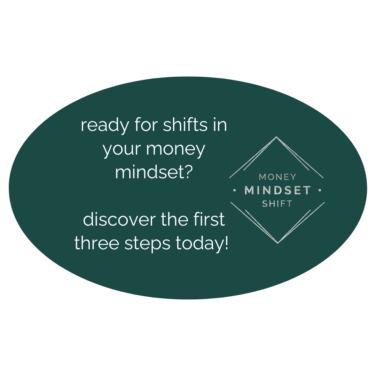The Impact of Your Money Mindset on Your Financial Success
By Wendy Wright, LMFT, Financial Therapist
Who is driving your money bus: you or your mindset?
What is a mindset? It’s defined by Merriam-Webster as “a mental attitude or inclination, a fixed state of mind” and by Wikipedia as “a mindset is an established set of attitudes of a person.” I, however, define it as “a belief that may or may not be a truth.”
Mindsets are powerful and often make decisions for you.
Let’s use a silly example. If you have a mindset – a set of beliefs and attitudes – that dogs make the perfect pet, you may avoid, spend less time with, or not invite over someone who has a mindset that cats are the only good pet. You may wonder, “How could someone prefer cats to dogs?!” You may send them articles about the joys of puppy ownership in order to passively influence them to come over to your mindset. You may post memes about ways that dogs are better than cats! You might get a second dog, even though you weren’t really ready to do so, in order to prove your mindset is right.
Sure, this example is a bit ridiculous, but did it resonate? We want to notice and appreciate ways that a mindset can influence our thoughts, feelings, and behaviors. As you see here, a mindset may drive the bus.
A money mindset has a similar definition: a belief or a set of beliefs about money that may or may not be a truth.
Have you ever taken a money mindset quiz? There are several out there. What did you think about your results? Take a moment to find a quiz and take it if you want. Then, write down a few sentences about how the results feel to you.
I have expanded on this idea in the Money Mindset Shift course. I want to do more than just help you identify your mindsets; I want to help you make shifts in your money mindset to better serve you. I want you to be driving that proverbial bus!
Want to take a peek inside the Money Mindset Shift course?
Here’s a look at one common money mindset and tips to shift it.
The Scarcity Mindset
Living in a Scarcity Mindset means it feels like there will never be enough. It can make the world feel like a terrifying place. Someone operating in a Scarcity Mindset may sacrifice their relationships for a fleeting sense of security—their feeling of scarcity is so great that they can’t see past their immediate needs. Existing in this mindset for a long period of time can leave people feeling deprived and can foster fear, leading to anxiety and insecurity.
“In the mindset of scarcity, our relationship with money is an expression of fear.”
Lynne Twist, Soul of Money
People who have a highly-rigid brain chemistry may tend towards a Scarcity Mindset about money. I recall clients expressing that they couldn’t afford something when they in fact had thousands of dollars in savings. Their instinct to not use resources — whether that meant not spending money or perhaps not eating food — was grounded in fear and shame rather than reality.
→ Someone takes the first job they’re offered even if they’re incredibly overqualified. They feel it might be the last paycheck they’ll ever receive!
→ Someone doesn’t know when they’ll get another opportunity to eat a special or “forbidden” food, so they eat every morsel on their plate.
→ Someone buys toilet paper every time they’re in the grocery store (whether or not they already have some at home) because the store may be out next week.
Ask yourself: How often do you see yourself in this mindset on a scale of 1 to 10?
1 2 3 4 5 6 7 8 9 10
never sometimes often always
Compassion-Based Mindset: Sufficiency
The complement of the Scarcity Mindset is the Sufficiency Mindset. Someone operating from this context may think, “I can trust myself to meet my needs.” They may feel confident that there will be enough to go around. They may even realize that they won’t have everything they’ll ever want—and that’s ok. They’ll have enough.
“Sufficiency is a context we bring forth from within that reminds us that if we look around us and within ourselves, we will find what we need. There is always enough.”
Lynne Twist, Soul of Money
When we are able to live from the energy of sufficiency, we can see problems as learning opportunities, fears as messages instead of promises, and limits as creative guides. This energy helps us move from many all-or-nothing thoughts based in scarcity – from a thought like “I can never succeed” to “This path isn’t working for me, but I can trust that I’ll find another option.”
→ Someone shifts from thinking “I can’t be happy until I make more money” to “I keep thinking I need to make more money no matter how much I have—I wonder what I can learn from this cycle.”
→ Someone turns down a job because they didn’t feel valued, weren’t offered enough money, or knew they could find a better fit.
→ Someone stops eating when they’re full, even if there’s plenty of food left on their plate, because they trust that they can sufficiently and consistently satisfy their hunger.
Ask yourself: How often do you see yourself in this mindset on a scale of 1 to 10?
1 2 3 4 5 6 7 8 9 10
never sometimes often always
Journal Prompt: Shifting from Scarcity to Sufficiency
The first step to shift from a Scarcity Mindset to one of Sufficiency is increasing awareness of your current thoughts. Pull out your journal and think back to a time this week when you said or thought, “I can’t afford that” or “Only rich people do that.” Reflect on how that felt.
Then ask yourself, “Is this statement a belief or a truth?” As always, remember to approach this answer with compassionate curiosity and nonjudgement.
Typically, when faced with this question, we realize that it’s a belief that we can’t afford to purchase something. What we’re really saying is something like, “I’m not willing to trade for that.”
Now, revisit the situation where you felt scarcity and try reframing your statement. Instead of saying “I can’t afford that,” ask yourself, “Am I willing to trade my time and money for that?”
As you find yourself in this Scarcity Mindset over the next week, pull out your journal and reflect on how it feels to reframe these limiting statements into curious ones.
Your money mindset may be defining your own ideas of financial success.
It may even be getting in the way of defining financial success or deciding that financial success is only for other people. Here are a few journal prompts for you to explore your money mindset:
- How would you define your money mindset?
- Have you ever written a definition of it?
- Do it now.
- Read it a few times. Is it your definition or someone else’s?
- Does your money mindset limit your definition of success? How so?
If this topic resonates with you, consider joining me for the Money Mindset Shift course!

 [testimonials_slider no_cache=true random=true paging=true]
[testimonials_slider no_cache=true random=true paging=true] 



